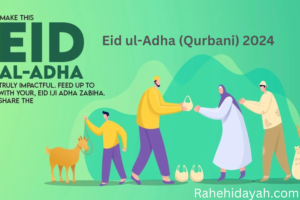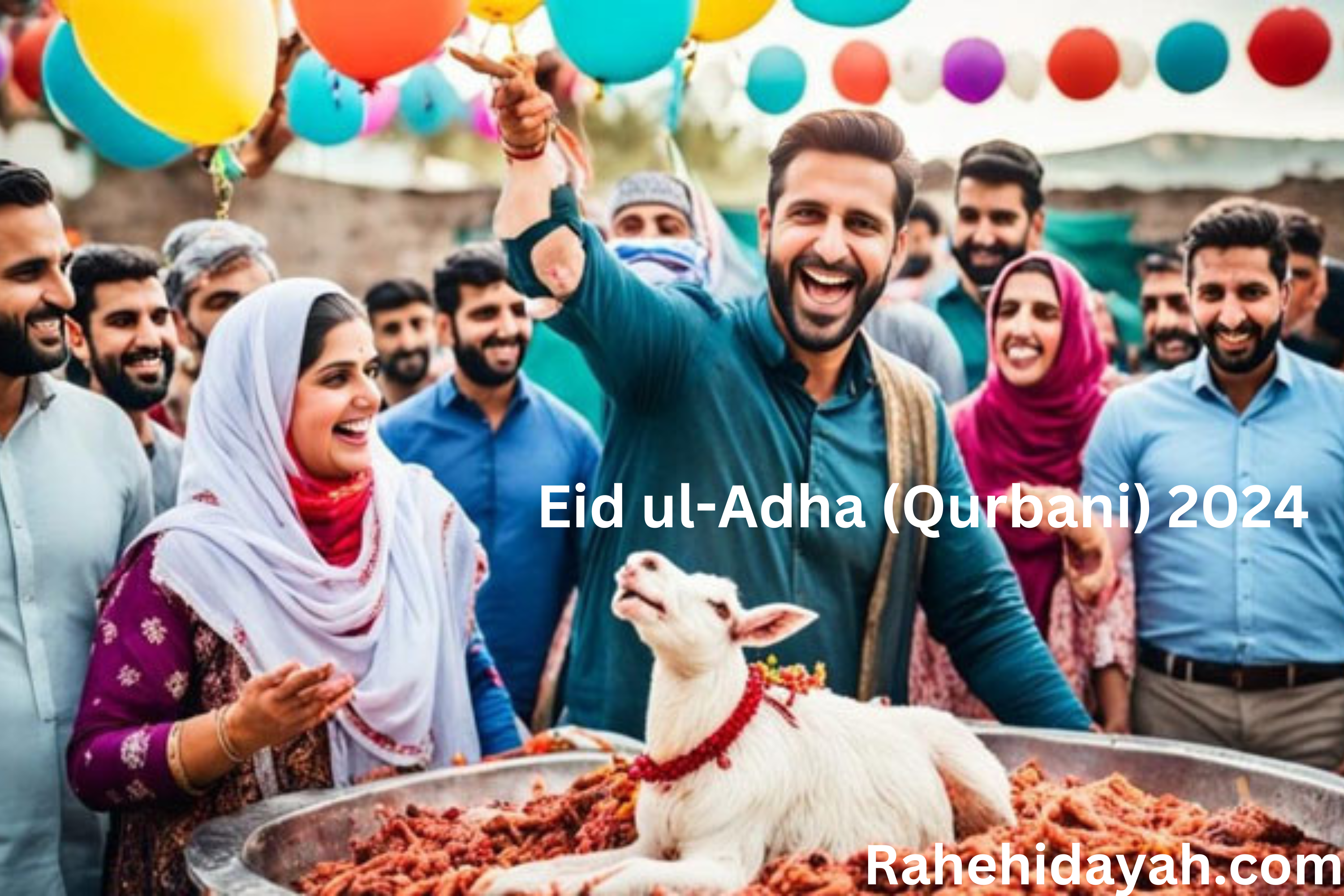Eid ul-Adha (Qurbani) 2024
Eid ul-Adha (Qurbani) 2024. This sacred occasion commemorates the willingness of Prophet Ibrahim (Abraham) to sacrifice his son Isma’il (Ishmael) as an act of obedience to God’s command. However, before the sacrifice, Allah provided a ram to be sacrificed instead. This event symbolizes devotion, submission, and trust in the divine will.

Significance of Eid ul-Adha:
It marks the culmination of Hajj and is celebrated by Muslims worldwide with prayers, feasting, and acts of charity.
The core significance of Eid ul-Adha lies in the concept of sacrifice. It reminds Muslims of the importance of surrendering to the will of Allah and prioritizing spiritual values over worldly desires. The act of sacrifice, known as Qurbani, symbolizes obedience, gratitude, and empathy towards others, especially those less fortunate.
Traditions and Practices:
- Qurbani Ritual: The Qurbani ritual involves the sacrifice of an animal, such as a goat, sheep, cow, or camel, following the Sunnah of Prophet Ibrahim. The meat is then distributed among family, friends, and the needy, fostering a sense of community and compassion.
- Eid Prayers: Muslims gather in mosques or open spaces to perform special Eid prayers, known as Salat al-Eid, which consist of two units of prayer followed by a sermon. These prayers emphasize gratitude, repentance, and unity among the Muslim ummah (community).
- Family and Community Gatherings: Eid ul-Adha is a time for families and communities to come together, share meals, exchange gifts, and strengthen bonds of kinship. It promotes unity, love, and harmony among people of diverse backgrounds.
- Charitable Giving: Charity, or Zakat, is a fundamental aspect of Eid ul-Adha. Muslims are encouraged to give generously to those in need, ensuring that everyone can partake in the joyous festivities and experience the blessings of Eid.
Spiritual Essence:
Eid ul-Adha embodies profound spiritual lessons that resonate with Muslims throughout the world. The act of Qurbani underscores the importance of selflessness, humility, and obedience in the path of righteousness.
Moreover, Eid ul-Adha fosters a sense of empathy and compassion towards the less fortunate members of society. By sharing the blessings of Eid through acts of charity and generosity, Muslims exemplify the teachings of Islam and uphold the principles of social justice and solidarity.
Conclusion:
Eid ul-Adha, the Festival of Sacrifice, encapsulates the essence of Islam’s core values, including faith, sacrifice, and compassion. It serves as a profound reminder of Prophet Ibrahim’s devotion to Allah and his willingness to surrender to divine commandments.
As Muslims commemorate Eid ul-Adha each year, they reaffirm their commitment to spiritual growth, community welfare, and righteous living. Through acts of worship, charity, and celebration, they seek to honor the legacy of Prophet Ibrahim and embody the timeless teachings of Islam.
